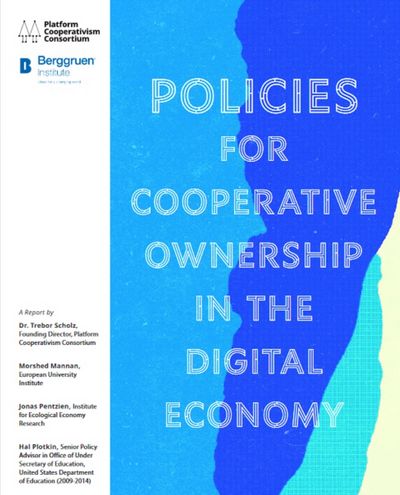Policies for Cooperative Ownership in the Digital Economy
This white paper, co-published by Platform Cooperativism Consortium and the Berggruen Institute, critically examines the impact of the gig economy over the past decade. While digital platforms like Uber and GrubHub promised to revolutionize work, the gig economy has, in reality, led to increased precarity and exploitation, eroding labor protections and public services. The COVID-19 crisis further exposed these issues, with gig workers particularly facing economic dislocation. In response, the report advocates for the promotion of platform cooperatives, democratically governed organizations owned by workers and other stakeholders. Platform co-ops offer an alternative to the gig economy, returning a greater share of income to workers, enhancing protections, and building communities. However, their success requires active government intervention, and the report proposes various policy measures at national and municipal levels to empower platform cooperatives.
Recommendations include preferential treatment in procurement policies, public solidarity lending, state ownership in cooperatives, legal research to adapt laws to digital realities, provision of public benefits, and the establishment of public spaces as cooperative hubs. Case studies from California (USA), Kerala (India), Barcelona (Spain), Bologna (Italy), Berlin (Germany), Paris (France), and Preston (United Kingdom) inform these policy suggestions, aiming to create a more equitable playing field for platform cooperatives and reduce risks through collective goods provision.



